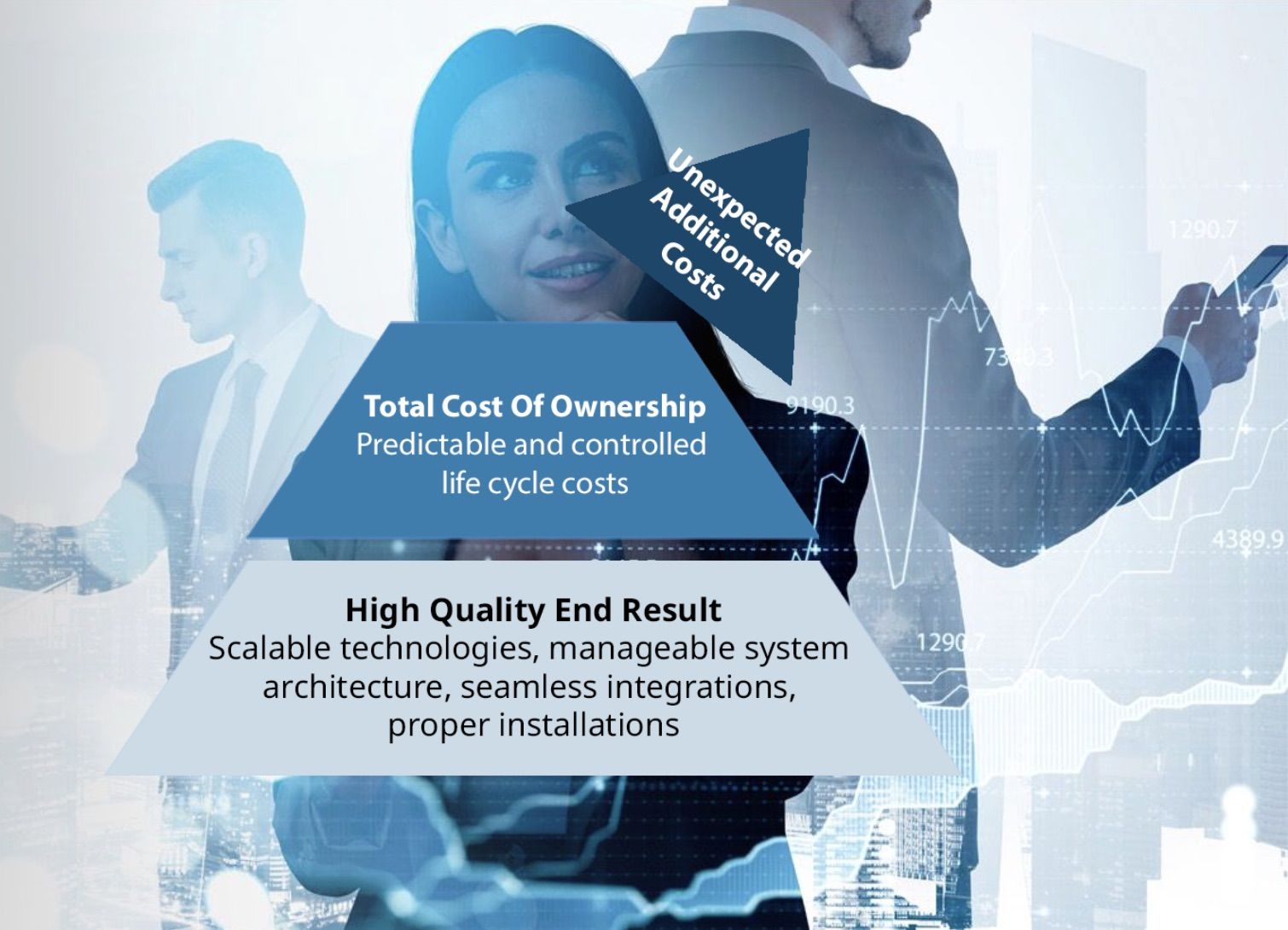-
Security budgeting - How to create an accurate multi-year budget
Effective security budgeting starts with a clear understanding of your organization’s overall security landscape and its future development needs. A workshop is an efficient way to build this foundation—creating a shared view of what needs to be done and when.
A rapidly changing security environment, rising costs, and artificial intelligence are putting pressure on corporate security, while budgets continue to tighten. Long-term security planning is now more critical than ever, not only for managing risks but also for maintaining cost efficiency.
Corporate security is a complex whole made up of many interdependent parts. Security systems and technologies require continuous development and investment to ensure that protection remains up to date.
If security management is fragmented and lacks long-term planning, budgeting becomes difficult. Annual budgets built without an overall view rarely match real development needs. Security investments then become reactive, difficult to manage, and costly over time—both directly and indirectly.
Common challenges in security budgeting
1. Unnecessary purchases
When the condition and potential of existing systems are unclear, unnecessary investments are easily made. Money is spent while the value of current solutions remains underutilized.
2. “Use-it-or-lose-it” spending at year-end
As the fiscal year ends and remaining budget funds need to be used, updates or purchases are sometimes made without understanding their impact on the whole. Sudden development needs also create unrealistic delivery expectations for vendors.
3. Hidden costs emerge
Fragmented management creates hidden costs that go unnoticed. Inefficiencies arise: systems are underused, processes contain unnecessary steps, or the same task is handled across multiple systems.
4. Constant “firefighting”
Security development revolves around putting out fires. Outdated systems are patched together with quick fixes, and money is spent on expensive short-term repairs.
5. Unclear personnel needs
Without visibility into the future, it’s difficult to plan resource requirements for the coming year.
Why security should be planned 3–5 years ahead
Accurate, forward-looking security budgeting starts with understanding the current state and planning development needs based on that insight. Being systematic doesn’t mean being rigid—it means being better prepared and able to make informed decisions even in times of change.
When the key areas of security are clearly mapped out and actions are planned over a longer period, development becomes more efficient and overlapping efforts are eliminated. This prevents reactive “firefighting” and costly corrections later. In the long run, this approach saves money.
A 3–5-year budget allows you to allocate funds precisely when they’re needed. Human resources can be assigned efficiently, and other security-related process changes can be planned as the budget is allocated.
A workshop builds the foundation for security budgeting
The foundation of security budgeting is understanding what needs to be done, and when. We help organizations define this through our workshop process.
Our workshop is a collaborative method designed to create a tailored 3–5-year security plan that serves as the basis for budgeting.
Before the workshop:
The process begins with an initial interview to clarify the client’s objectives. Based on this, we define the workshop’s concrete goals—what it aims to achieve.
We identify the organization-specific security areas that require financial planning. These may include, for example, technical security infrastructure, security culture, and security management.
Workshop participants are invited from those departments in our client’s company that have an impact on security. Usually, this includes experts from departments such as facilities, IT, and security.
During the workshop:
1. We identify development needs. How should each identified area of security evolve over the next few years?
2. We translate needs into concrete actions. What specific actions are required to meet those needs? Should existing systems be developed or new ones procured?
3. We prioritize and schedule actions on a 3–5-year timeline. What must be done immediately? What can be developed or acquired later?
After the workshop:
After the workshop, the organization has a shared, documented understanding of planned security initiatives—a clear foundation for budgeting and decision-making.
Next, it’s time to estimate the workload of these initiatives. Workload assessments can be acquired from consultants or system providers if needed.
Not everything can necessarily be estimated right away—some areas may require further clarification. Do certain projects require external expertise or implementation support?
Once the workload for each initiative is understood, a detailed annual budget can be developed for each year.
The outcome:
After the workshop, the organization has a concrete 3–5-year roadmap that aligns perspectives across departments and enables controlled, cost-efficient development.
Example: During the workshop, seven upgrade needs are identified, spread across a three-year timeline. Preliminary workload estimates and a rough three-year budget are created. All items can then be competitively tendered in one go.
An independent expert brings confidence to decisions
Engaging an independent expert in security budgeting is an investment that typically pays for itself through cost savings. The cost of expert support is small compared to the total scope of corporate security, but it can make all the difference in maintaining control of the whole.
An independent security expert:
- helps create a clear overview of the entire security landscape
- provides an impartial, expert perspective
- leverages experience from countless implementations and systems
- ensures resources are directed where they create the most value
Frozen Graphene is an independent expert in corporate security challenges.
Want clarity in your security budgeting? Get in touch to book a free initial consultation with our expert.
Tags: security-services Back





